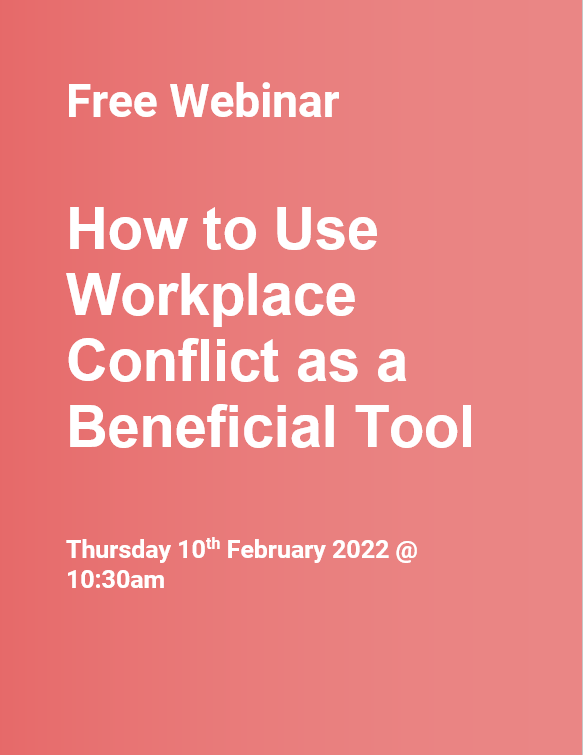Tuesday 08 Feb 2022 Article
The TakeawayUsing Office Politics and Strategic Networking to Progress Your Career
Effectively Communicating with Your Stakeholders
#Communication #EffectiveCommunication #ConflictResolution #Stakeholders #PersonalDevelopment
The perfectly matched resource for this article...
[Free Webinar] Using Conflict as a Beneficial Tool
Sign up to our free webinar by clicking the button below to learn how to use conflict as a beneficial tool!
Register for free!Using Office Politics and Strategic Networking to Progress Your Career
What do you think of when you hear the phrase ‘office politics’? A lot of people associate it with rumours, conflict, backstabbing and selfishness; they avoid it at all costs.
What if we were to tell you that office politics could be the key to furthering your career?
In today’s article, we explore how to use office politics to effectively network with your stakeholders and build a better career by nurturing working relationships.
What Are ‘Office Politics’?
Office politics, in simple terms, refer to the ‘complex social structure of a workplace’, including off-the-record conversations, unwritten rules, and working relationships between individuals.
In one of our podcast episodes with Bev, our Head of Learning Solutions, and Kerry, one of our specialist Trainers, we delved into a Forbes article written by Bonnie Marcus that highlights the importance of office politics and how to use it in a beneficial way.
Whilst the article primarily focuses on women working in male-dominated companies and industries, it can be applied to anyone in any role at any company within any industry.
As Bonnie Marcus says in her article, the key to progressing your career through office politics is to be ‘politically savvy’; performance alone isn’t enough, you also need to be able to strategically network.
How to Be Politically-Savvy and Network Strategically
Whilst there are many factors that contribute to being politically savvy, there are a few things to pay particular attention to:
Consider Power and Influence
You should converse and build relationships with those who have power and influence over your career and your future. As Bonnie explains very well, you should aim to “build a strategic network of allies and champions who advocate for you and support your initiatives and advancement”.
When thinking about who holds power in your organisation, it’s important to consider the different types of power; Mind Tools’ ‘Understanding Where Power Comes From in the Workplace’ article explores French and Raven’s Five Forms of Power.
Discover and Follow Unwritten Rules
Another aspect of a workplace’s culture that you should pay attention to is the unwritten rule book. Whilst not following these unwritten rules likely won’t get you fired, it certainly won’t improve your chances of getting promoted.

Every workplace has different unwritten rules, but here are 3 of the most common ones:
- Early is on-time, and on-time is late
Official working hours may start at 9am but employees are often expected to arrive at work earlier - Always offer tea and coffee
When making yourself a hot drink, in a lot of organisations it is considered rude not to offer one to your colleagues - Keep your workspace clean
Whilst it may not be in your job description or list of responsibilities, employees are usually expected to do their own washing up and generally keep their workspace clean and tidy
Use Conflict as a Fuel to Strengthen Your Team
Conflict is an unavoidable part of working life and, when managed well, it can help drive collaboration and innovation.
At 10:30am GMT on Thursday 10th February 2022 we are holding a free webinar all about ‘How to Use Workplace Conflict as a Beneficial Tool’.
This webinar will look at the reasons behind conflict, how it develops in the workplace, and how to better manage it.
To sign up for this free webinar, please click here.
Our Top Tip on Strategic Networking
“Invest your time and energy into networking, but make sure you’re doing it with the right stakeholders; it’s all about having the right conversations with the right people.”
---
Until next time...
[Free Webinar] Using Conflict as a Beneficial Tool
Sign up to our free webinar by clicking the button below to learn how to use conflict as a beneficial tool!
Register for free!